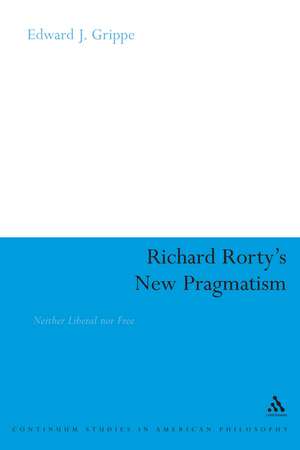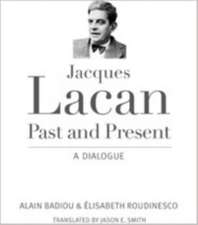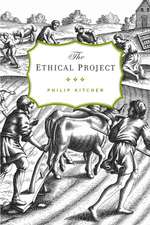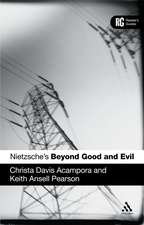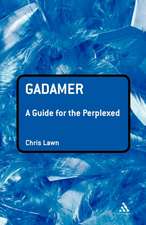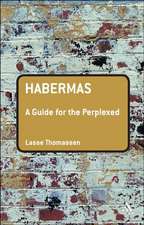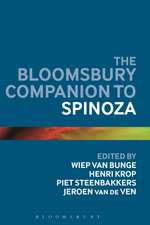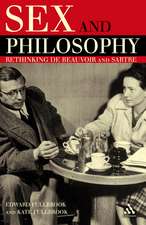Richard Rorty's New Pragmatism: Neither Liberal nor Free: Continuum Studies in American Philosophy
Autor Edward J. Grippeen Limba Engleză Hardback – 22 apr 2007
Din seria Continuum Studies in American Philosophy
- 22%
 Preț: 1006.62 lei
Preț: 1006.62 lei - 22%
 Preț: 1004.76 lei
Preț: 1004.76 lei - 23%
 Preț: 256.12 lei
Preț: 256.12 lei - 22%
 Preț: 1005.41 lei
Preț: 1005.41 lei -
 Preț: 256.67 lei
Preț: 256.67 lei - 31%
 Preț: 888.97 lei
Preț: 888.97 lei - 19%
 Preț: 465.14 lei
Preț: 465.14 lei - 22%
 Preț: 1006.30 lei
Preț: 1006.30 lei -
 Preț: 254.75 lei
Preț: 254.75 lei - 23%
 Preț: 255.66 lei
Preț: 255.66 lei -
 Preț: 256.12 lei
Preț: 256.12 lei - 22%
 Preț: 1007.20 lei
Preț: 1007.20 lei - 14%
 Preț: 889.88 lei
Preț: 889.88 lei -
 Preț: 254.28 lei
Preț: 254.28 lei -
 Preț: 255.66 lei
Preț: 255.66 lei -
 Preț: 255.76 lei
Preț: 255.76 lei - 23%
 Preț: 256.12 lei
Preț: 256.12 lei
Preț: 889.97 lei
Preț vechi: 1140.76 lei
-22% Nou
Puncte Express: 1335
Preț estimativ în valută:
170.32€ • 177.16$ • 140.61£
170.32€ • 177.16$ • 140.61£
Carte tipărită la comandă
Livrare economică 14-28 aprilie
Preluare comenzi: 021 569.72.76
Specificații
ISBN-13: 9780826489012
ISBN-10: 082648901X
Pagini: 224
Dimensiuni: 156 x 234 x 22 mm
Greutate: 0.48 kg
Editura: Bloomsbury Publishing
Colecția Continuum
Seria Continuum Studies in American Philosophy
Locul publicării:London, United Kingdom
ISBN-10: 082648901X
Pagini: 224
Dimensiuni: 156 x 234 x 22 mm
Greutate: 0.48 kg
Editura: Bloomsbury Publishing
Colecția Continuum
Seria Continuum Studies in American Philosophy
Locul publicării:London, United Kingdom
Caracteristici
An interdisciplinary approach to the analysis of Rorty's writings
Cuprins
Introduction
Part I.
1. Overview: The Premises Underpinning Rorty's New Pragmatism
2. The Foundational-Anti-Foundational Debate: Its Modern Roots
3. The Contemporary Debate: The Epistemic Regress Challenge of Foundationalism and its Ironic Impotence
Part II
4. The Denial of Scientism and Performative Contradiction: The Aesthetics of Pragmatic Narratives
5. Rorty's Jeffersonian Strategy: The Privatization of the Philosophical
6. The Hermeneutical Approach and its Implication for Rorty's Jeffersonian Strategy
7. Hobbes, Rorty and their Common Political Paradox
8. Freud's and Rorty's Internal Cartesian Paradox
9. Neither Liberal nor Free: The Singularism of New Pragmatism
Bibliography
Index
Part I.
1. Overview: The Premises Underpinning Rorty's New Pragmatism
2. The Foundational-Anti-Foundational Debate: Its Modern Roots
3. The Contemporary Debate: The Epistemic Regress Challenge of Foundationalism and its Ironic Impotence
Part II
4. The Denial of Scientism and Performative Contradiction: The Aesthetics of Pragmatic Narratives
5. Rorty's Jeffersonian Strategy: The Privatization of the Philosophical
6. The Hermeneutical Approach and its Implication for Rorty's Jeffersonian Strategy
7. Hobbes, Rorty and their Common Political Paradox
8. Freud's and Rorty's Internal Cartesian Paradox
9. Neither Liberal nor Free: The Singularism of New Pragmatism
Bibliography
Index
Recenzii
"A thorough, balanced critique of Rorty's pragmatism (or non-pragmatism) recommended for anyone seeking an overview of the present situation of pragmatism and philosophy in general" -Joan Stambaugh, Professor Emeritus, Hunter College, CUNY, USA
"This book is essential reading for those interested in Rorty." -Aaron James Landry, Philosophy in Review
"Grippe has a keen eye for fundamental tensions and contradictions within Richard Rorty's mix of antifoundationalism and idiosyncratic liberalism... Given Grippe's keen eye for contradictions, this book will be useful for graduate, research libraries. Summing Up: Recommended. Graduate students and researchers/faculty." - D. Christie, CHOICE, June 2008, Vol.45 No.10
"There are few philosophers working today who exemplify the unyielding logical rigor of Ed Grippe's work... But what makes it a truly rare find is that he combines this rigor with such creativity and real-life relevance. I know of no philosopher on the contemporary scene that I would say is more relentless in this kind of interrogation, always demanding that the unexamined presupposition come into focus. This leads to work that sparks the reader's imagination without using any logical shortcuts, cheap rhetorical tricks, or unanalyzed fashionable turns of phrase..." Ralph D. Ellis, Professor of Philosophy, Clark Atlanta University, Editor, Consciousness & Emotion
"This book is essential reading for those interested in Rorty." -Aaron James Landry, Philosophy in Review
"Grippe has a keen eye for fundamental tensions and contradictions within Richard Rorty's mix of antifoundationalism and idiosyncratic liberalism... Given Grippe's keen eye for contradictions, this book will be useful for graduate, research libraries. Summing Up: Recommended. Graduate students and researchers/faculty." - D. Christie, CHOICE, June 2008, Vol.45 No.10
"There are few philosophers working today who exemplify the unyielding logical rigor of Ed Grippe's work... But what makes it a truly rare find is that he combines this rigor with such creativity and real-life relevance. I know of no philosopher on the contemporary scene that I would say is more relentless in this kind of interrogation, always demanding that the unexamined presupposition come into focus. This leads to work that sparks the reader's imagination without using any logical shortcuts, cheap rhetorical tricks, or unanalyzed fashionable turns of phrase..." Ralph D. Ellis, Professor of Philosophy, Clark Atlanta University, Editor, Consciousness & Emotion
